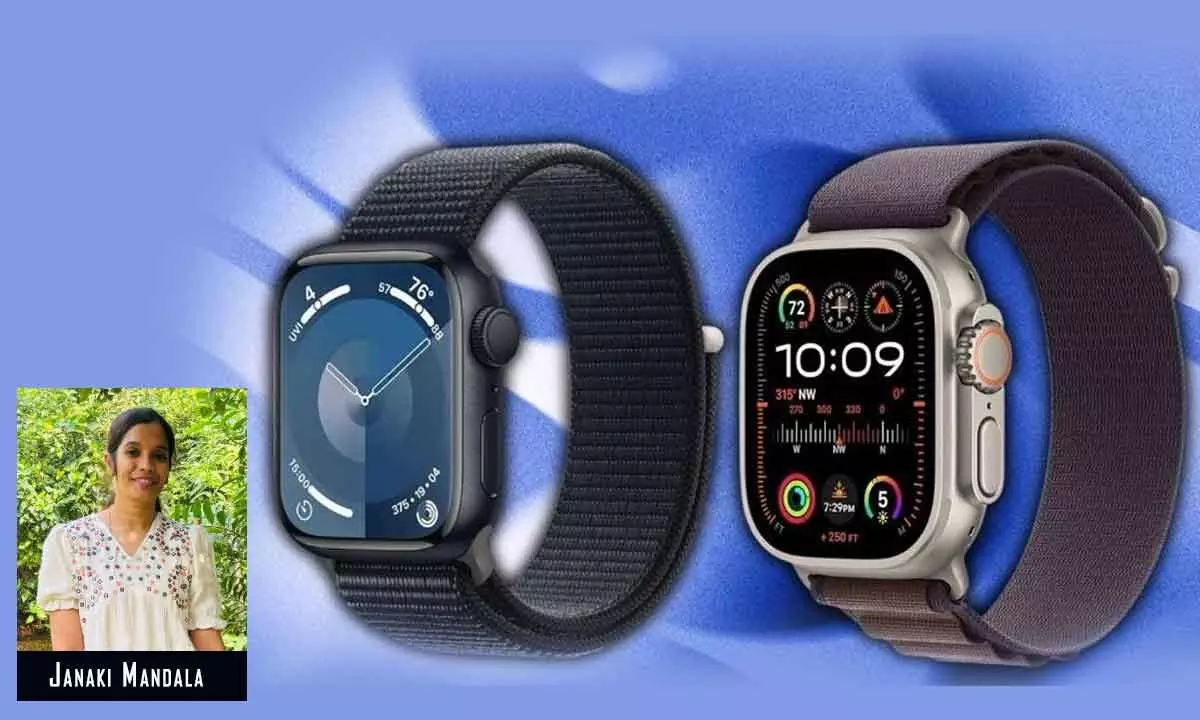Masimo’s lesson to Apple: Smart patents can remove smart watches from the shelves
Patents curb competition but they never close the door for collaboration
image for illustrative purpose

With almost a $ 14 billion market for smart wearables in the US and an expectation of doubling to $ 28 billion in the next five years a lot is at stake for tech companies rolling out new devices with new technologies. It’s been a common trend about how big companies dominate the small ones, and this is where Intellectual property Rights like patents can come to the defence
Patents have been considered as a power tool for technology companies since decades and this fact has been proven again in the recent case of Apple smart watches going off the shelves for their infringement on Masimo’s patents on pulse oximeter technology in their smart watches.
With this ban coming in after the ruling from US International Trade Commission (ITC), Apple has withdrawn its smart watches series 9 and Ultra 2 versions from the shelves in US. The decision is a welcome move as it demonstrates that even the world’s most powerful company must abide by the law, fall in line or pay the price.
Patents are filed to get monopoly with an exclusive right for 20 years from the filing date to prevent others from making, using, selling, and importing the invention. It's this right which gives the owner the freedom to operate and take legal action against the infringing party, and hence Apple has been asked to stop importing the models to US and sell.
Masimo, a health technology company from southern California has won a patent battle over their technology that enables the ‘blood oxygen saturation levels being recorded the most accurately’ in this segment and can read the human pulse. Further the company has been in the business of pulse oximetry for the last 30 years and this is a testimony to their innovation and the product getting patent for this technology. Massimo has shown the world that being the first and true innovator of a great technology will have the first mover advantage and anyone working around this technology would need their license and operate and without that will be infringing. Their patent is for hardware with the software and mere changing of the software by Apple might not fit the bill in the coming days and will be interesting to watch the arguments by both the parties.
With almost a $ 14 billion market for smart wearables in the US and an expectation of doubling to $ 28 billion in the next five years a lot is at stake for tech companies rolling out new devices with new technologies. It’s been a common trend about how big companies dominate the small ones, and this is where Intellectual property Rights like patents can come to the defence. Masimo is ready for a settlement with Apple, but Apple still needs to make its move and come to the negotiation table.
The strategies available for Apple are to either agree for a settlement or contest the matter in the federal court, which will be time consuming and laced with uncertainties. With Apple’s proven R&D track record, the best approach will be to innovate a better technology feature and get a patent for it to come back strong in this business of wearables.
To conclude, technology will always remain ahead of law, but IPRs have the power to slow down or fasten Technology progress.
This legal fight will get interesting in the coming days and is a very good eye-opener for startups and big tech companies, who now need to carry out proper due diligence and patent analysis before launching their products. Patents curb competition, but they never close the door for collaboration. Hence, it is imperative that companies look at avenues to collaborate on technologies for better and economical solutions to create a win -win situation for both the customer and companies.
(The writer is an Advocate)

